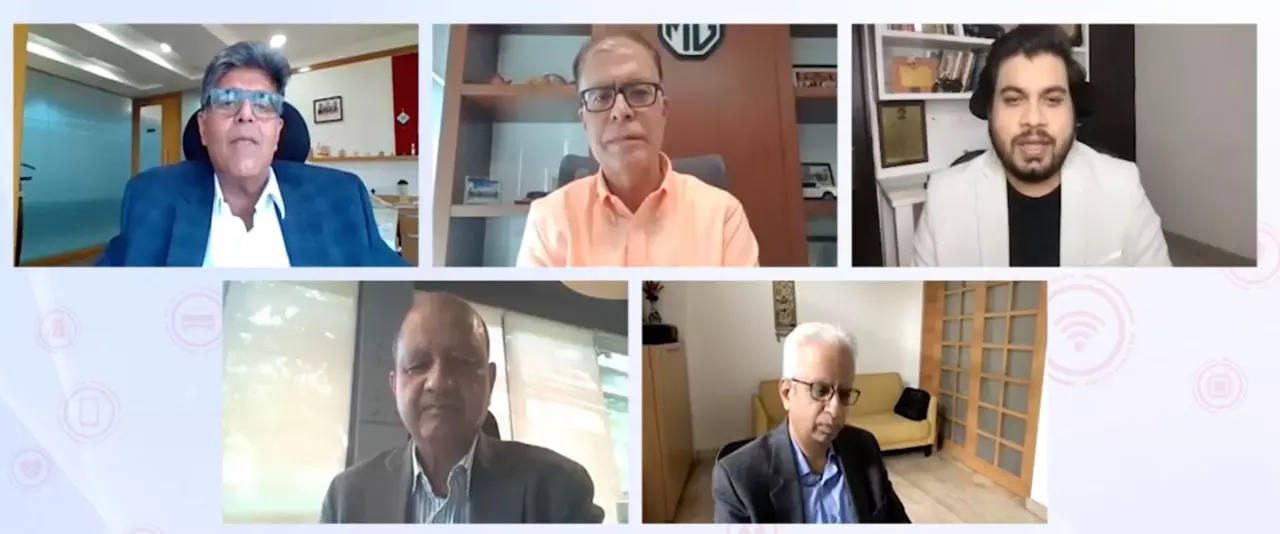
New Delhi:
Malaysia, one of the leading suppliers of ECUs, limping back to normalcy, the Indian auto industry captains see the worst behind them. But they think a smooth demand-supply equilibrium is still months away.“I think the worst is behind us as Malaysia, the biggest supplier of ECUs, is coming back to normalcy. but given the kind of huge backlog, I think it will take at least 6-9 months to clear that. However, normalcy will start to resume in the first quarter of the next financial year,” Veejay Nakra, CEO, automotive, Mahindra & Mahindra, said during a panel discussion at the ETAuto Connected Vehicle Summit
Normalcy will start to resume in the first quarter of the next financial yearVeejay Nakra, CEO, automotive, M&M
According to Rajeev Chaba – President and Managing Director, MG Motor India, even before the pandemic crisis these chip companies were operating on a 90% capacity and shortage did exist even in the pre-Covid time. “Soon after the pandemic, we cut the production schedule but we realised that the demand is not that bad, so we went into the queue. I think it will take from 9 months to one year before we reach a demand and supply equilibrium,” Rajeev added.
However, he pointed out that for MG Motor the worst is not over and it is still going through the worst phase. “October, November, and December are very bad for us, especially when we have launched a new car, the Astor. But hopefully, from Jan-Feb the situation will improve a little bit,” he asserted.
Vinod Aggarwal, MD and CEO, VECV, also agreed that the worst should be over and we should see some improvement.
On the reasons for the crisis he said, “When the Covid-19 broke out the automotive industry reduced the demand for semiconductors. But at the same time demand for them from other industries like telecom and laptops went up owing to work from home and the launch of 5G. Manufacturers allotted the capacity to these sectors and hence the shortage for the auto industry.”
When Covid-19 broke out, the automotive industry reduced the demand for semiconductors. But at the same time demand for them from other industries like telecom and laptops went up owing to work from home and the launch of 5G. Manufacturers allotted their capacity to these sectors and hence the shortage for auto industryVinod Aggarwal, MD and CEO, VECV
He also added that since the contribution of the automobile industry is not much, the semiconductor makers are not ready to give that capacity back to the auto industry. “Three tiers of suppliers – from Silicon to wafer, semiconductor to ECUs are involved. They depend on various geographies and suppliers. Even if one link in the chain is disturbed the entire thing goes for a toss,” Aggarwal said, agreeing that the crisis shall continue to impact for the next 9-12 months.
Rajeev Chaba highlighted an interesting part that there are some traders who deal in chips and they are dealing with them and paying multiples of premium to get the chips.
“We are trying flexible production of cars without semiconductors that can be fitted later on. We are exploring all options,” another measure MG Motor is taking to resolve the crisis.
We are trying flexible production of cars without semiconductors that can be fitted later on. We are exploring all optionsRajeev Chaba, President and Managing Director, MG Motor India
Veejay Nakra also agreed, “All of us have learnt agility in all aspects like producing vehicles without ECUs etc. But one thing is clear that going forward the cars we launch will have even higher numbers of connectivity and semiconductors.”
(The ETAuto Connected Vehicle Summit 2021 is supported by Varroc Excellence, Tata Communications, Siemens and Hexagon.)
Also Read:
















